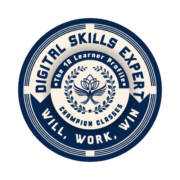In today’s interconnected world, marketing has evolved from traditional billboards and print ads to an expansive digital ecosystem that allows businesses to reach their target audiences with precision and creativity. Effective marketing is no longer optional—it’s a necessity for any brand looking to succeed in the competitive landscape. This blog explores the power of marketing, the various types of marketing strategies, and why a strong marketing plan is critical for business growth in the digital age.
What is Marketing?
Marketing encompasses a range of activities aimed at promoting and selling products or services. It involves understanding consumer needs, creating value, and effectively communicating that value to the target audience. In a broader sense, marketing is about building relationships with customers and driving engagement to ultimately boost brand awareness, loyalty, and revenue.
In the digital realm, marketing goes beyond just advertising; it integrates various channels such as social media, content, SEO, email marketing, and paid ads to reach customers at multiple touchpoints. The beauty of modern marketing lies in its ability to leverage data to optimize campaigns and measure success in real-time.
Key Types of Marketing Strategies
- Content Marketing
Content marketing is a strategic approach focused on creating and distributing valuable, relevant, and consistent content to attract and retain a clearly defined audience. Whether through blogs, videos, infographics, or podcasts, content marketing is a long-term strategy that positions your brand as a thought leader in your industry. The key is delivering content that addresses your audience’s pain points and educates them, which builds trust and drives conversions. - Social Media Marketing
Social media platforms such as Facebook, Instagram, LinkedIn, and Twitter have become powerful tools for businesses to connect with their audiences. Social media marketing allows brands to engage with users directly, share updates, promote products, and build a community. With billions of active users across platforms, social media marketing is essential for businesses looking to expand their reach and engage in two-way communication with potential customers. - Search Engine Optimization (SEO)
SEO involves optimizing your website and content to rank higher on search engines like Google. The goal of SEO is to increase organic traffic by ensuring that your site appears in relevant search results. This involves using keyword research, on-page optimization, quality content, and link-building strategies. A well-optimized site drives long-term, sustainable traffic to your website, which ultimately leads to higher conversion rates. - Email Marketing
Despite the rise of social media, email marketing remains one of the most effective marketing channels. It allows businesses to communicate directly with customers and prospects, delivering personalized content straight to their inboxes. Whether promoting a new product, sending newsletters, or nurturing leads, email marketing helps businesses maintain regular touchpoints with their audience. - Pay-Per-Click Advertising (PPC)
PPC is a form of paid advertising where businesses pay for each click their ad receives. Platforms like Google Ads and social media networks offer PPC options, allowing companies to target specific keywords or audiences. PPC is highly effective for generating immediate traffic and leads since you can control the budget, targeting, and ad placement. However, it’s crucial to monitor campaigns closely to ensure a strong return on investment (ROI).
Why Marketing is Crucial for Business Growth
- Brand Awareness
Marketing is essential for building brand recognition. Whether through organic content or paid advertising, businesses need to get their name in front of the right audience. The more visibility your brand has, the more likely consumers are to remember and choose you when they’re ready to make a purchase. - Customer Engagement
Today’s consumers expect more from brands than just products; they seek meaningful interactions. Marketing allows businesses to engage with customers at various stages of their buyer journey. From initial discovery to post-purchase support, engaging marketing campaigns create touchpoints that guide customers through the funnel, building relationships that lead to long-term loyalty. - Data-Driven Decision Making
Digital marketing provides measurable results. Analytics tools allow businesses to track everything from website traffic to social media engagement and conversion rates. By analyzing these data points, companies can adjust their strategies in real-time to improve effectiveness and ROI. This data-driven approach ensures that marketing efforts are always aligned with business goals. - Competitive Advantage
In an increasingly crowded market, marketing helps businesses stand out. Whether it’s through unique branding, creative content, or targeted ads, marketing allows you to differentiate your brand and attract customers who resonate with your message. Staying ahead of the competition requires constant innovation and the ability to adapt to new trends and technologies. - Sales Growth
The ultimate goal of any marketing strategy is to drive revenue. By increasing brand awareness, generating leads, and nurturing customer relationships, marketing directly contributes to sales growth. The more effective your marketing efforts, the more you’ll see an increase in conversions and profits.
Conclusion
Marketing is the engine that drives business success in the digital age. Whether through content marketing, social media engagement, SEO, or paid advertising, businesses must embrace a multi-channel marketing strategy to stay competitive and grow. Investing in marketing allows you to build brand awareness, engage customers, and ultimately drive sales. In a rapidly evolving digital landscape, having a well-planned and data-driven marketing strategy is the key to thriving and achieving long-term business success.

